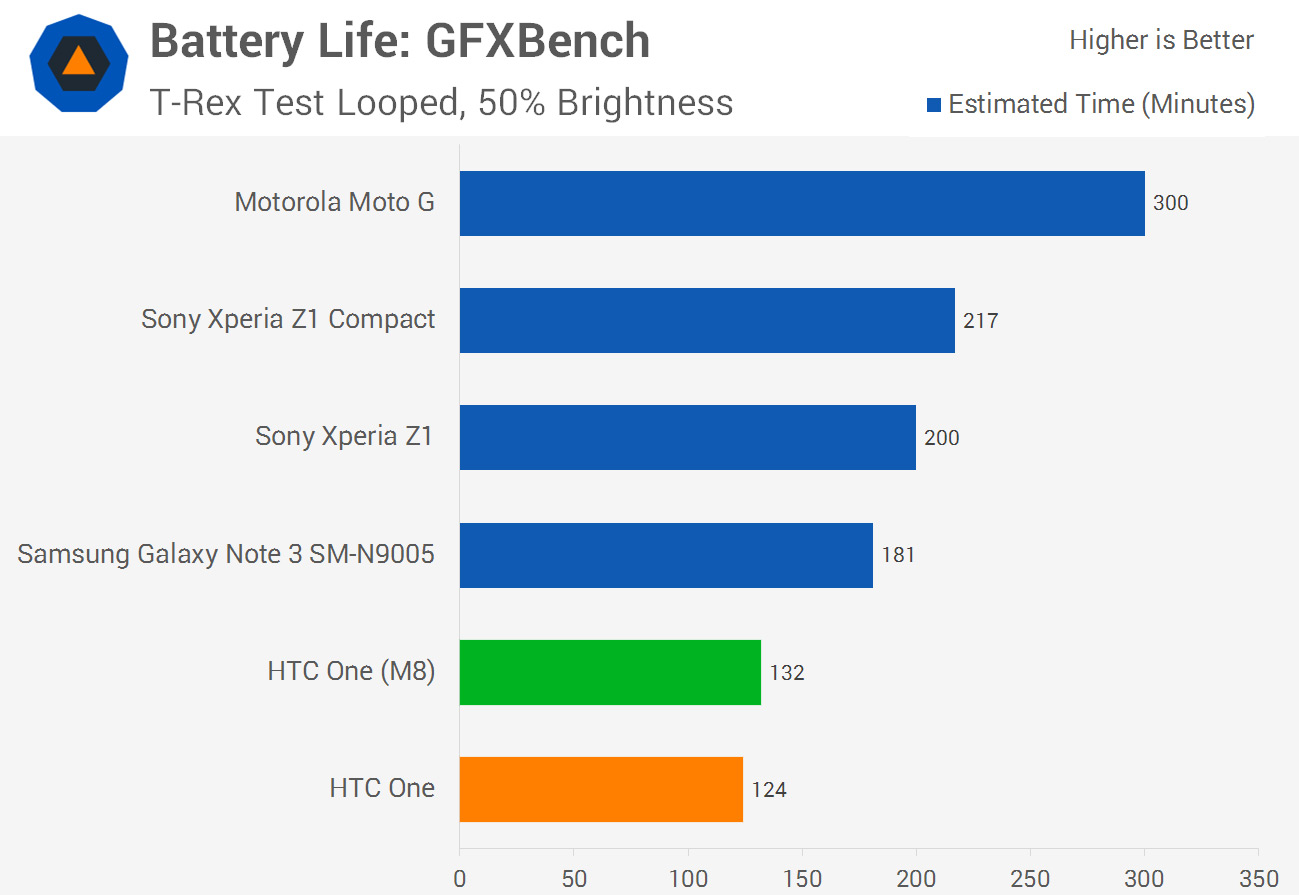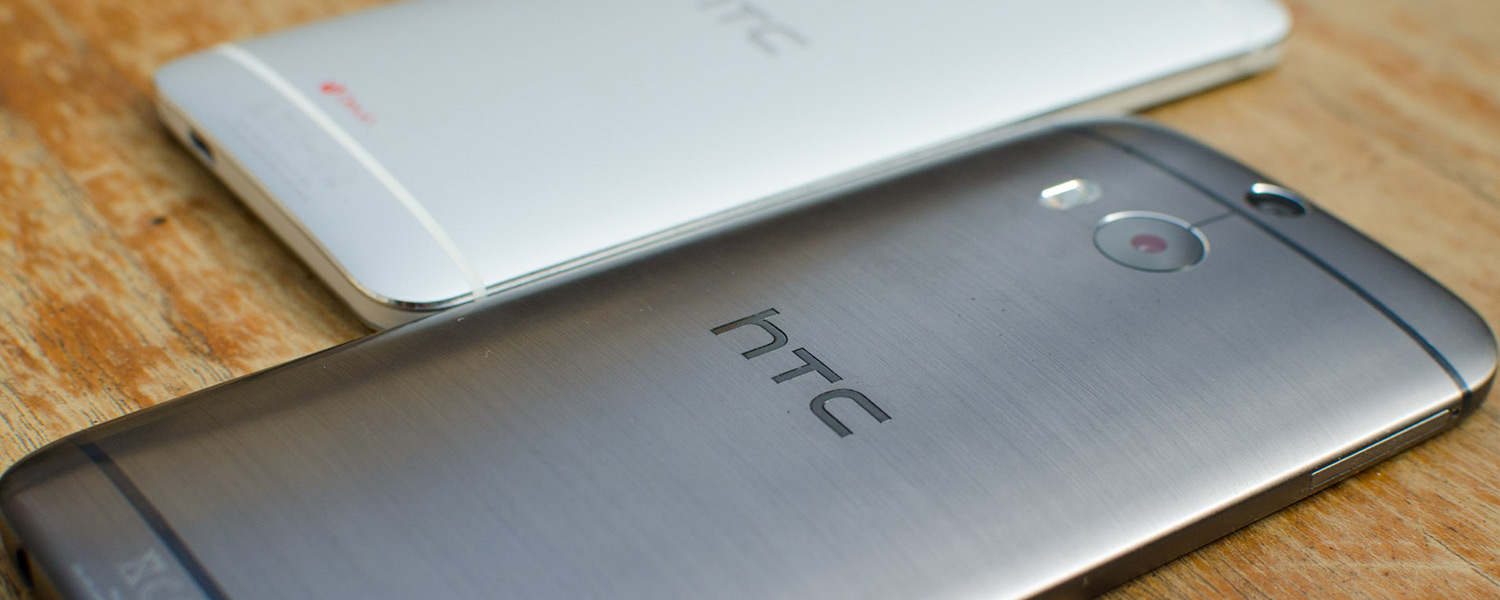Battery Life
Packed into the HTC One M8 is a 2,600 mAh 3.8 V battery for a total capacity of 9.88 Wh, which is 13% larger than the HTC One M7. In HTC's documentation for the all new One, the company claims this battery can last 40% longer, which is an interesting claim considering the physical difference. This difference could be attributed to the more power efficient Snapdragon 801 SoC, or improvements in display technology, but it's something I'll be testing.
Generally I experienced better battery life from the One M8 than I did from the M7. With typical usage I would end a day with around 40% of the juice remaining to be used, which is a decent result. This is comparable to what I achieved with the Sony Xperia Z1 and its 11.4 Wh battery, but not as good as the LG G2's highly efficient usage of its own 11.4 Wh battery contained inside.
The HTC One M8 packs two separate power saving modes. One is the standard power saving mode, which conserves CPU usage, reduces brightness and kills the data connection when the screen is turned off. It can save battery life where necessary, but it doesn't provide massive gains.
The other is the Extreme Power Save mode, which as its name suggests is a much more severe way to conserve battery life. When the feature is enabled, everything else is disabled, giving you access just to the essential features of the phone: calls, messages, email, calendar, and the calculator. By transforming the device into a souped-up feature phone, HTC claims you can get up to 30 hours of life from just 10% remaining charge.
While the feature definitely seems cool, I couldn't test it because it wasn't actually installed on my test unit. HTC assures me that the feature will be made available to devices worldwide through an over the air update, so don't be surprised if it isn't on your HTC One M8 out of the box.

Starting with this review of the HTC One M8, we're adding to the set of battery benchmarks we run on devices. I've been building up a set of results over the past few months so we can compare the M8 to some other devices currently on the market.

In this test we're looping a full refresh of the TechSpot homepage at a 90 second interval (which simulates reading lengthy webpages like this review). Brightness is set to 50% and the SIM card is removed so cellular networks aren't used. Most devices seem to perform well in this particular benchmark, and the One (M8) is no exception. If you're reading many web pages on the device, expect pretty good battery life.

In GFXBench's battery test, which runs a loop of the GPU-intense T-Rex HD test 30 times at 50% brightness before extrapolating how long the phone would last, the HTC One (M8) performs pretty disappointingly. What could be a culprit here is HTC's benchmark cheating code that bumps the CPU up to 2.5 GHz regardless of the CPU load, which naturally will drain more battery than necessary if the CPU isn't being used at 100%.
If companies didn't cheat in benchmarks, maybe they would perform better in tests like this. Sometimes it does backfire.

The HTC One M8 charges quickly thanks to its support of Qualcomm's Quick Charge standard. Expect a full charge time under 2 hours from a 10W charger, although note that the charger included in the box outputs just 1.5A (or 7.5W). It might be worth investing in a more powerful charger to get the quickest charge time out of the One M8.

